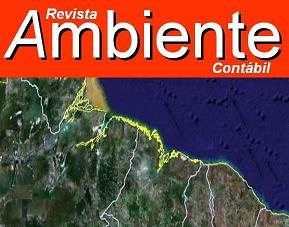MOTION TRAINING VERSUS PERFORMANCE: A COMPARATIVE STUDY OF UNDERGRADUATE COURSES IN ACCOUNTING FROM IFES BRAZILIAN
Abstract
The present study aims to analyze the relation between the level of adherence of the training proposals of undergraduate courses in Accounting from IFES (presential) and the performance of students in ENADE. The institutional clipping noted the information provided in the Portal e-MEC in terms of type of institution, type of course, concepts obtained and hour load, as well as the dissemination of the PPC on the portal of the university, which resulted in 31 IFES. The collection process observed the analysis of PPC's about the level of adherence to training proposals from the MEC (19 items), CFC (50 items) and UN (24 items) , considering the presence (1) or absence (0) of information . The indicators relating to concepts of the course and of the IFES, as well as the hour load and adherence to the proposals were organized and stacked for a cross section analisys, with the aid of Gretl®. Data indicate that IFES attend at least 60% to the proposal from CFC and 63.16% to the proposal from MEC. The UFU is the only institution that attended 100% to the proposal from MEC and UFMT - Cuiabá is the IFES that least adheres to training proposals. Regarding to the hour load, it is noteworthy that UFMT - Rondonópolis is the IFES with the greatest hour load, with 3500 hours, primarily serving the proposals of the MEC (84%) and CFC (80%). The terms received by the course, UFSC and UFRGS are the ones analyzed, which holds 5 concept in ENADE, IGC and CPC. Another issue that has drawn attention is that four institutions do not follow the indication of the CNE / CSE as the hour load: the UNITE, UFES the UFCG and UFPB. Furthermore, the study indicates that the performance of ENADE is explained by adherence to the CFC training proposal, than the other proposals and hour load.
Keywords: Training proposal. Pedagogical project course. Evaluation.
Downloads
Downloads
Additional Files
Published
How to Cite
Issue
Section
License
Authors who publish in this magazine agree with the following terms:
Authors keep the copyrights and concede the right of its first publication to the magazine. The work piece must be simultaneously licensed on the Creative Commons Attribution Licence which allows the paper sharing, and preserves both the author identity and the right of first publication to this magazine.
Authors are authorized to assume additional contracts separately, to not-exclusively distribution of the paper version published in this magazine (e.g.: publish in institutional repository or as a book chapter), with the author identity recognition and its first publication in this magazine.
Authors are permitted and stimulated to publish and distribute their papers online (e.g.: in institutional repository or on their personal webpage), considering it can generate productive alterations, as well as increase the impact and the quotations of the published paper.
Creative Commons - Atribuição-NãoComercial-SemDerivações 4.0 Internacional.


 Português (Brasil)
Português (Brasil) English
English Español (España)
Español (España)


